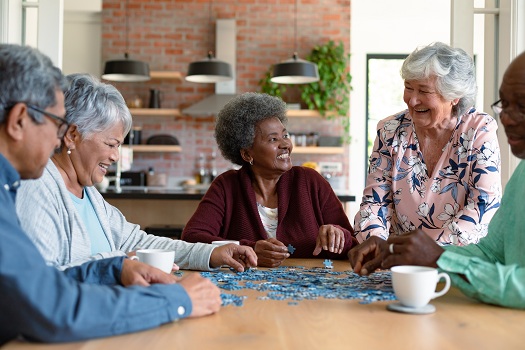In the intricate dance of health and well-being, the power of social connections often takes center stage. For seniors navigating their healthcare journey with Medicare, the role of community and social engagement becomes a crucial factor in shaping a vibrant and fulfilling life. In this guide, we’ll explore the profound impact of social connections on senior health, how Medicare supports community engagement, and practical tips for fostering meaningful connections.
1. The Essence of Social Connection for Senior Health
- Emotional Well-Being:
- Emphasize the positive impact of social connections on emotional well-being, including reduced feelings of loneliness, depression, and anxiety.
- Physical Health Benefits:
- Discuss how social engagement contributes to physical health, promoting cardiovascular health, immune function, and potentially increasing longevity.
2. Medicare’s Recognition of Social Determinants of Health
- Whole-Person Care:
- Explore how Medicare is evolving to recognize the importance of social determinants of health, aiming for a holistic approach to senior care that goes beyond medical interventions.
- Community-Based Support:
- Discuss community-based support programs and initiatives covered by Medicare that address social needs, including transportation services, meal delivery programs, and in-home assistance.
3. Community Resources and Medicare Advantage Plans
- Community Centers:
- Highlight community centers and senior centers as valuable resources for social engagement. Discuss how Medicare Advantage plans may offer additional benefits, such as access to community programs.
- Local Support Services:
- Explore local support services covered by Medicare, such as counseling, support groups, and wellness programs that enhance social connections and address mental health.
4. Socially Engaged Aging: Practical Tips for Seniors
- Joining Clubs and Groups:
- Encourage seniors to explore clubs, hobby groups, or community organizations that align with their interests. Discuss the benefits of shared activities and the potential for building lasting friendships.
- Volunteer Opportunities:
- Highlight the positive impact of volunteering on mental well-being. Discuss how seniors can contribute to their communities while fostering a sense of purpose and connection.
- Technology and Virtual Socializing:
- Discuss the role of technology in facilitating virtual socializing, especially for seniors who may face mobility challenges. Explore virtual classes, video calls, and online communities.
5. The Importance of Face-to-Face Interaction
- Community Events:
- Encourage seniors to attend local community events, fairs, or gatherings. Discuss the value of face-to-face interactions in creating a sense of belonging and connectedness.
- Shared Meals and Celebrations:
- Emphasize the social aspects of shared meals and celebrations. Discuss the importance of communal dining, whether through community events or gatherings with friends.
6. Navigating Changes and Transitions with Community Support
- Retirement and Social Connection:
- Discuss how retirement can impact social connections and provide tips for maintaining and building new relationships during this transition.
- Coping with Loss:
- Address the role of community support in helping seniors cope with losses, whether related to the passing of loved ones or changes in living arrangements.
7. The Role of Medicare Advantage Plans in Social Determinants
- Innovations in Medicare Advantage:
- Explore how some Medicare Advantage plans are innovating by addressing social determinants of health, including partnerships with community organizations to provide additional support services.
- Tailored Benefits:
- Discuss how certain Medicare Advantage plans offer tailored benefits that go beyond traditional healthcare, recognizing the importance of social connections in overall well-being.
Conclusion: Nurturing the Tapestry of Well-Being
In the grand tapestry of health, social connections are the vibrant threads that weave together emotional, physical, and mental well-being. With Medicare’s evolving approach to community-based support and a commitment to addressing social determinants of health, seniors can embrace a healthcare journey that prioritizes the richness of social connections. Let’s foster a community where every senior is not just a beneficiary of Medicare but an integral part of a network that nurtures the tapestry of well-being, ensuring that the golden years are adorned with the warmth of meaningful relationships.



